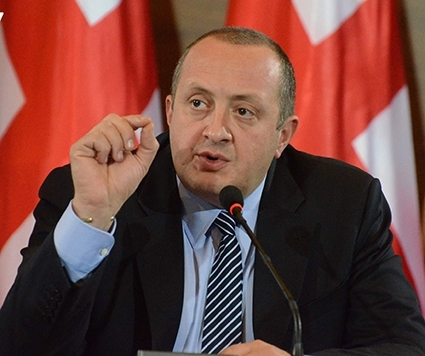President Vetoes Bills of Self-Government and Election Codes
The President of Georgia, Giorgi Margvelashvili has vetoed the amendments adopted by the parliament to the Self-government Code and Election Code.
Margvelashvili said he added motivated remarks to the drafts and sent them back to the parliament.
“I hope the Parliament will consider my motivated remarks… The ruling party should be more active and listen to different opinions while making important political decisions,” he added.
Self-Government Code amendments were adopted by Parliament on June 30 with the third reading, which envisages reduction of self-governing cities.
Among 14 municipalities in Georgia, seven are self-governing cities (Zugdidi, Ozurgeti, Gori, Telavi, Akhaltsikhe, Mtskheta and Ambrolauri), will lose their status and be transformed into municipalities.
Moreover, the number of self-governing cities will be reduced from twelve to five. This means that during the local elections scheduled for this October, mayors will only be elected in Tbilisi, Batumi, Rustavi, Kutaisi and Poti, while the remaining cities will be left without a mayor.
As a result of the bill, there will be five self-governing cities and seven municipalities in the country.
As for the amendments to the Election Code, according to changes, appointment of members by the parties in the election administration will depend on the number of votes received by the parties in the last parliamentary elections.
According to the existing rule, the appointment of a party member to the election commission depends on the party funding amount, received from the state budget. The amendments adopted by the parliament enable parties to have more than one representative in the election commission.
The ruling party Georgian Dream (GD) says they will discuss the president’s remarks and make a decision to override the veto or not.
The leader of parliamentary majority, Archil Talakvadze says “veto-relationship” is not a good example of cooperation between the parliament and the presidential administration.
“We worked and adopted these laws. The president and his administration worked and vetoed them. The president knows that the veto can be overridden by the parliament, but he still expects us to get acquainted with his opinions and make decisions after this,” he stated.
The majority will need votes of at least 76 MPs to override the veto. The ruling GD has 116 MPs in the 150-seat parliament, which makes it easy for them to override the veto as it has happened many times in the past.
By Thea Morrison












